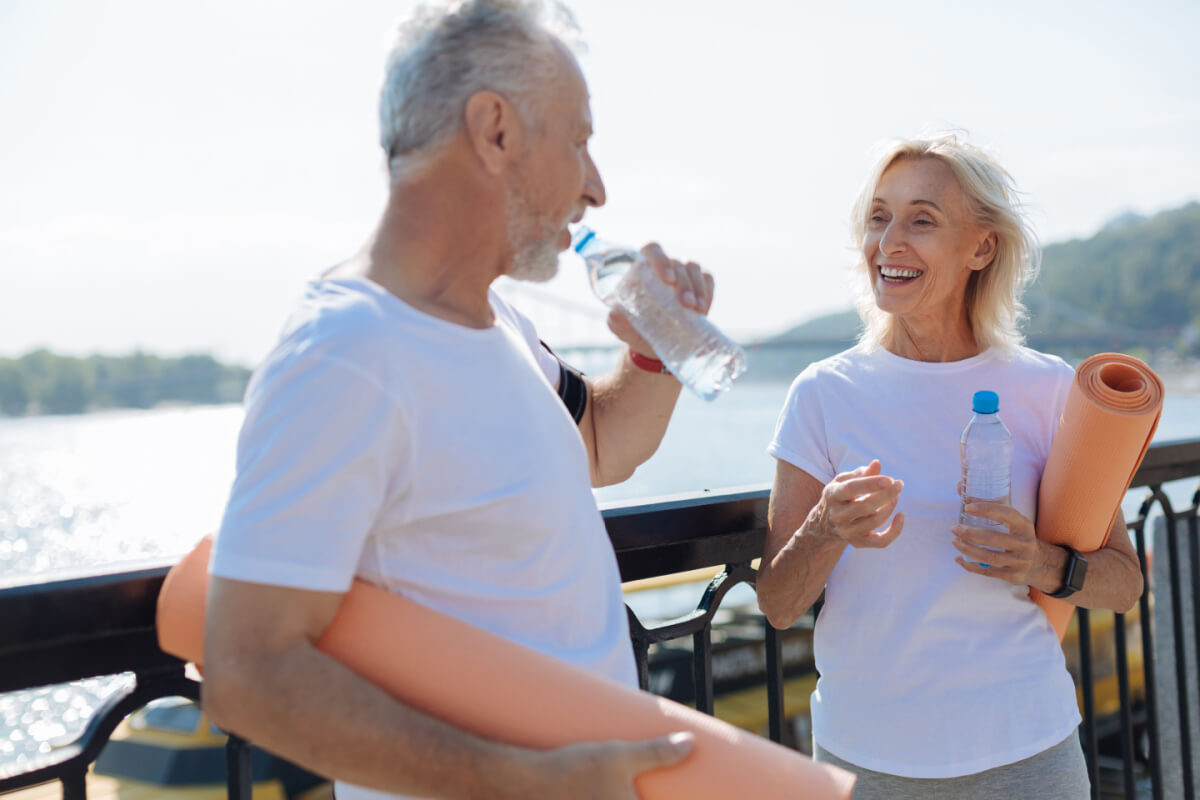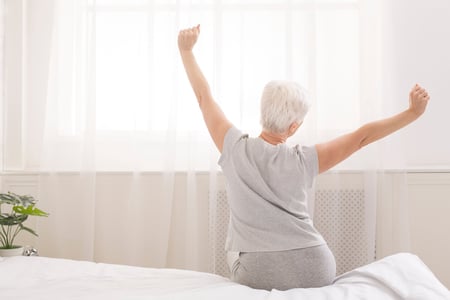
Brickmont Assisted Living proudly offers exceptional senior living in Atlanta and its surrounding areas, and we know Georgia has never been a stranger to the heat. In fact, from January to July 2022, the state saw some of the highest summer temperatures in almost 93 years.
As we get older, various age-related changes occur in our bodies. So how does age affect hydration, and how can you prevent yourself or someone you love from becoming dehydrated?
Senior living in Atlanta means you get to enjoy our beautiful region's lively opportunities. But it also means staying prepared and safe during the summer months. Our Brickmont team is sharing how age affects hydration, plus tips to ensure you can make the most of your summer.
What is Dehydration?
Dehydration is possible no matter your age, but older adults are more likely to become dehydrated. The process of dehydration occurs when your body's water content gets too low and is especially prevalent on hot days or after participating in physical activity.
When you don't drink enough water, dehydration can set in much quicker than you expect, and symptoms can include:
- Fever
- Vomiting
- Excessive Sweating
- Dizziness
- Confusion
How Does Age Affect Hydration?
Decreased Sense of Thirst
The feeling of thirst is the body’s natural defense to prevent dehydration, but as we get older, the signal of thirst begins to diminish along with the content of water within the body.
However, there are recommended guidelines for how much water a person should drink per day. According to the National Council on Aging, you should take one-third of your body weight and aim to drink that number in fluids. For example, if you weigh 150 pounds, you should drink 50 ounces of water daily.
Medication Side Effects
If you take specific medications for high blood pressure, diabetes, psoriasis, or even cancer, you might be at a higher risk for dehydration. This is because many medications prescribed for these health conditions have diuretic side effects, which increase urination and cause excessive fluid loss. If a person is expelling more water than they are consuming, they are at risk of dehydration.
Changes in Temperature Regulation
When you exercise or spend time in a warm climate, your body begins to sweat in order to lower the body’s temperature. As the sweat begins to evaporate from the skin, it starts to alleviate the excessive heat from the body, but these fluids need to be replaced.
Due to the loss of fluids that occurs with age, your body has a harder time producing these helpful fluids, and it might be difficult to tell when you’ve become overheated. This can lead to dangerous changes in body temperature, which can lead to heat stroke.
Cognitive Impairments
Older adults who live with a form of dementia are at an increased risk of dehydration for many reasons. For example, a person might not remember to drink as much water as they need in order to regulate body temperature and keep themselves hydrated.
In addition, due to the effects of cognitive decline on the five senses, it can also be difficult to miss the thirst signals that your body sends to the brain during times of potential dehydration.
Tips for Staying Hydrated
Set Reminders
Even if you constantly drink water throughout the day, it can be hard to recognize thirst signals. If you’re in the midst of a busy schedule, it can also be a challenge to find the extra time to remember to drink more water.
To combat this, try setting a reminder on your phone or smartwatch each day, and give yourself ample time to drink enough water within a certain window. The more you can keep up with your reminders, your body will naturally begin to establish the habit of drinking water at various times during the day.
Change Up Your Diet
Drinking water is a given, but that means being aware of the foods and drinks that contribute to dehydration. For instance, coffee, sodas, and alcoholic beverages can increase the risk of dehydration. Try to steer clear of these drinks as often as possible, especially if you know you’re going to be participating in activities that could potentially cause thirst or if you’re going to be spending time in hot environments.
You can also incorporate fruits and vegetables with high water content into your diet, such as:
- Melons
- Strawberries
- Celery
- Oranges
- Broccoli
- Bell Peppers
Senior living in the Atlanta area is nothing less than exciting and lively. There’s always a fun event or an interesting attraction to enjoy, but it’s important to be aware of the likelihood of high temperatures. After all, our city is often called “Hotlanta” for a reason.
By staying aware of the risks associated with age and taking preventative measures, you’ll be able to make the most out of the summer months and avoid dehydration.
We invite you to discover senior living in Atlanta and its surrounding areas today and explore our website to learn more about Brickmont Assisted Living.




.png)